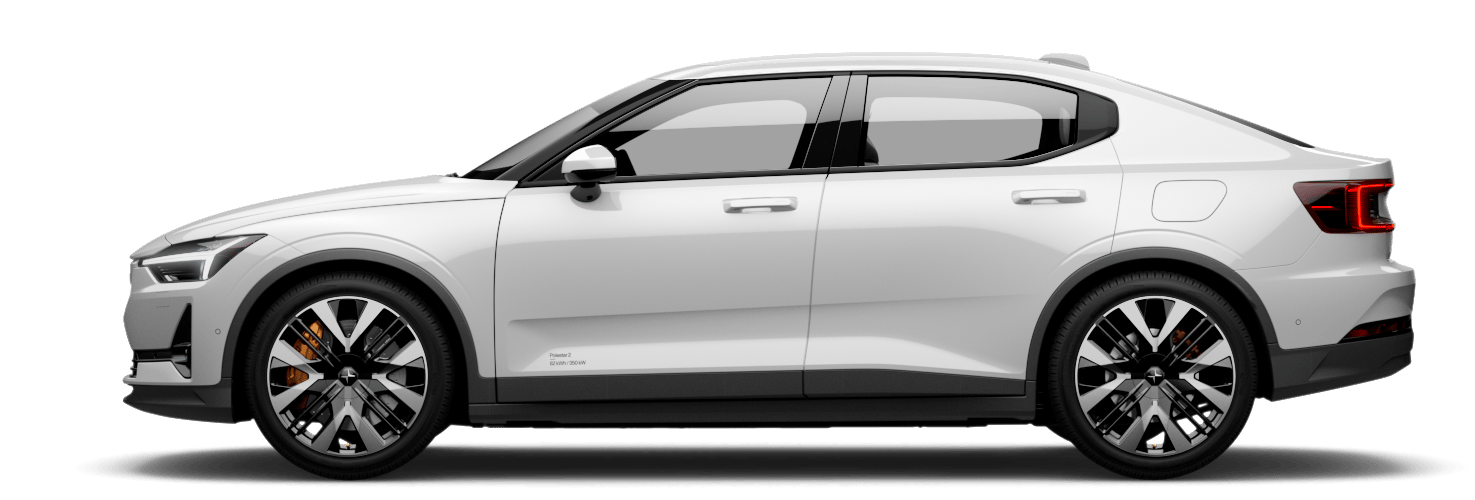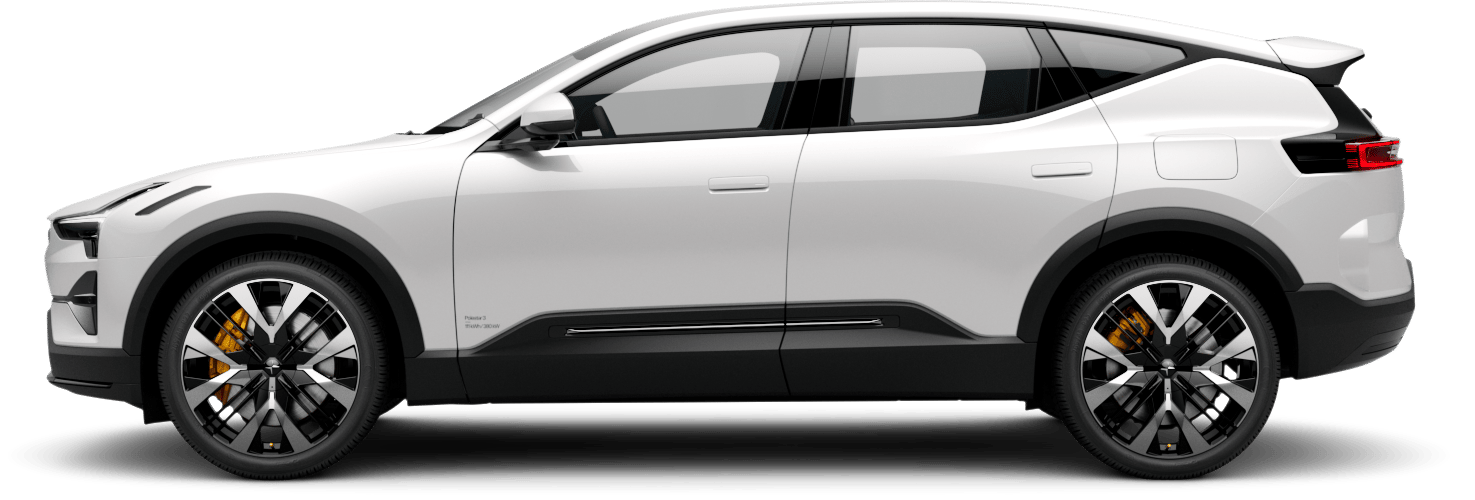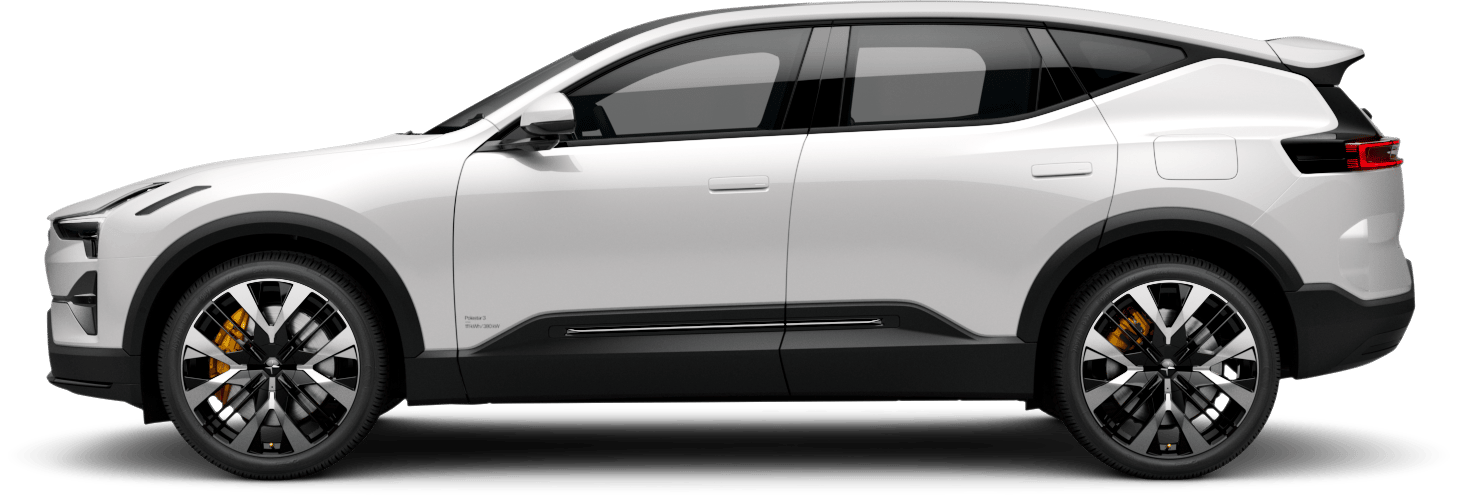BLIS
The BLIS1 function is designed to help provide assistance in heavy traffic with several lanes moving in the same direction by helping the driver to detect the presence of vehicles in the "blind spot" area behind and to the side of the vehicle.
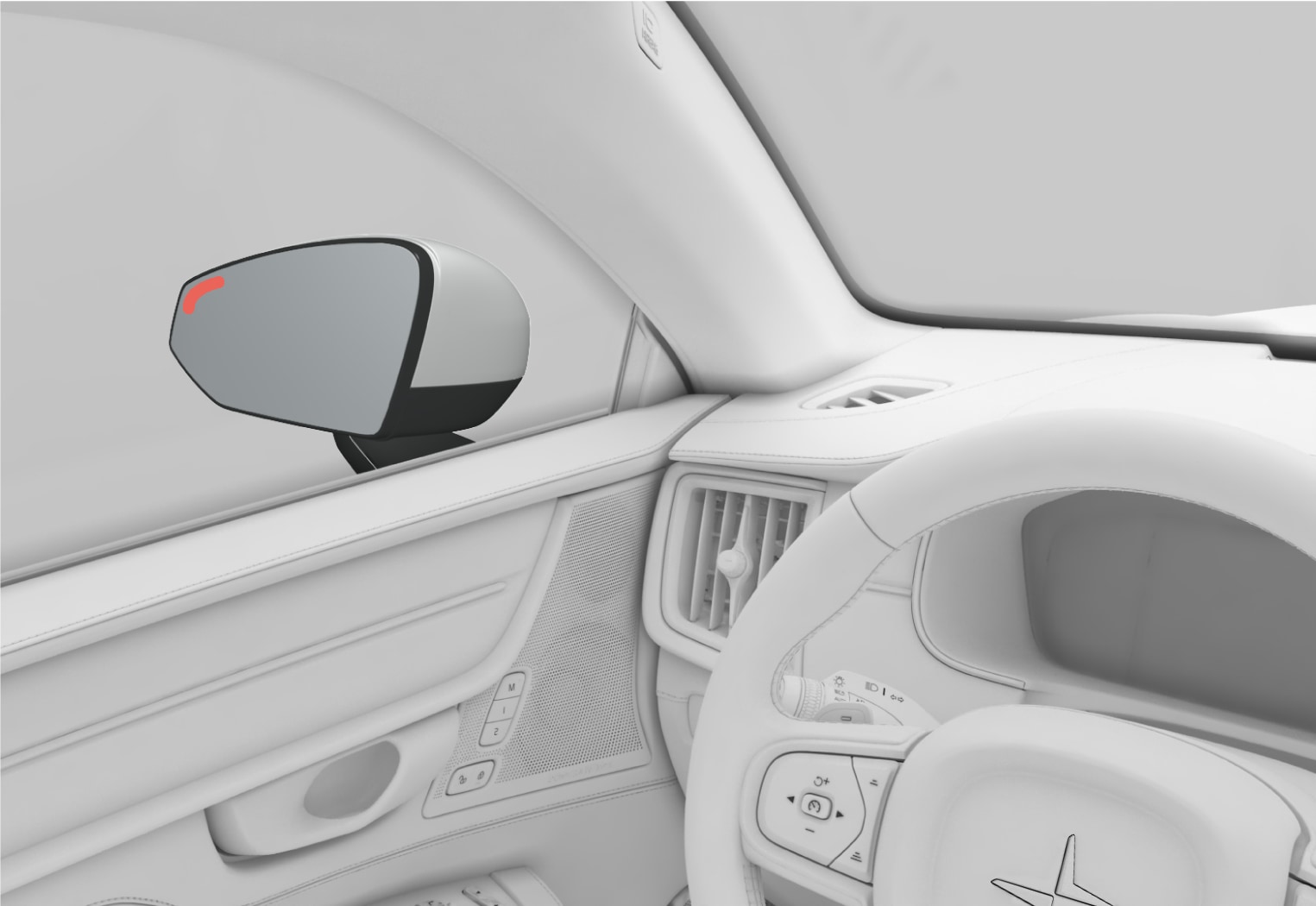
BLIS is a driver support system designed to alert the driver of:
- vehicles in your "blind spot"
- vehicles approaching rapidly in adjacent lanes.
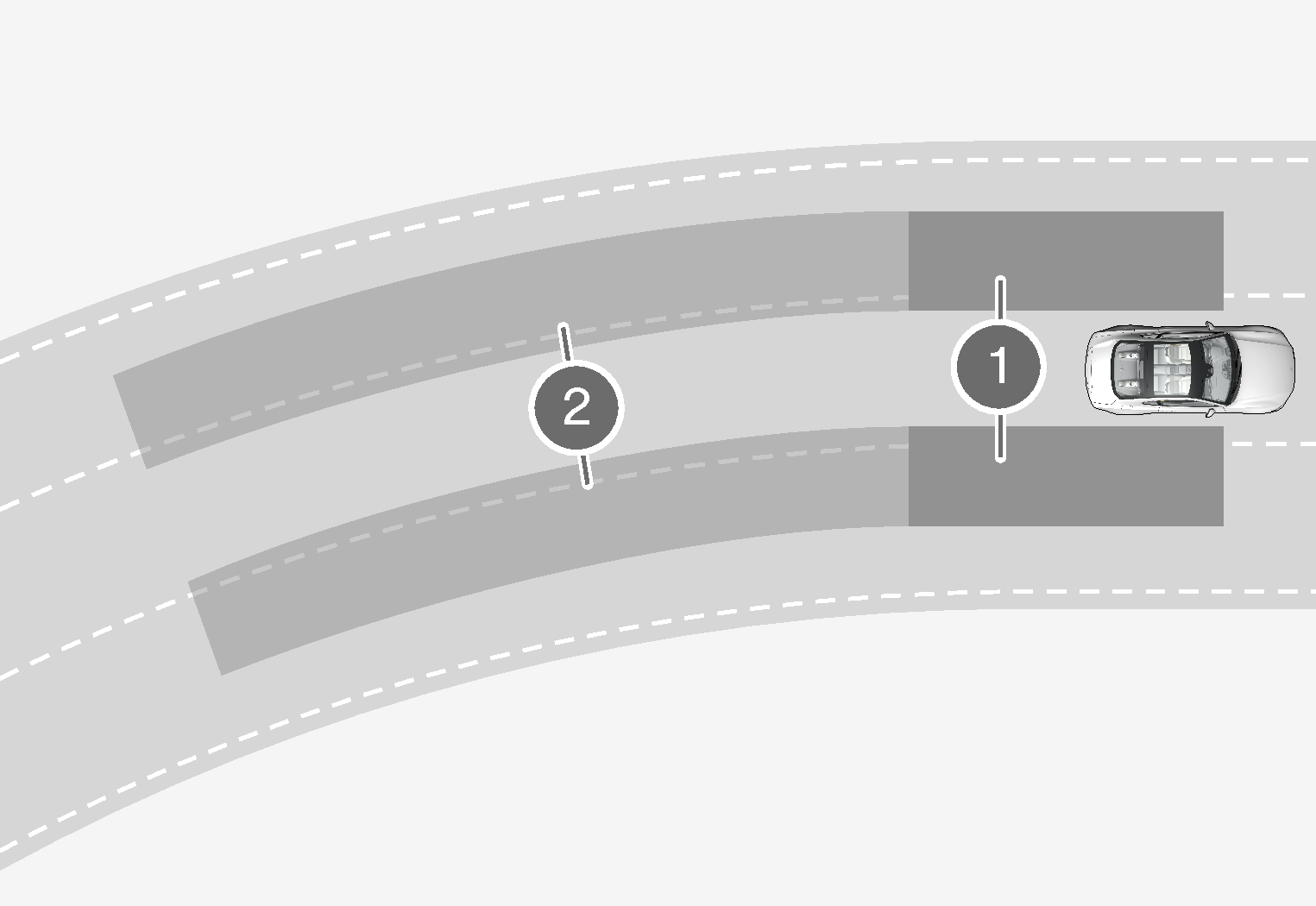
 Blind spot zone
Blind spot zone Rapidly approaching vehicle zone
Rapidly approaching vehicle zone
The BLIS function is active at speeds above 10 km/h (6 mph).
The system is designed to react to:
- vehicles passing your vehicle
- vehicles that are rapidly approaching your vehicle from behind.
When BLIS detects a vehicle in zone 1 or a rapidly approaching vehicle in zone 2, an indicator light will illuminate in the relevant rearview mirror and glow steadily. If the driver then uses the turn signal on the side in which the warning has been given, the indicator light will become brighter and begin flashing.
If a passing vehicle's speed is more than 15 km/h (9 mph) faster than your vehicle, BLIS will not react.
Note
The light illuminates on the side of the vehicle where the system has detected the vehicle. If the vehicle is passed on both sides simultaneously, both lights come on.
Warning
- The function is supplementary driver support intended to facilitate driving and help make it safer – it cannot handle all situations in all traffic, weather and road conditions.
- The driver is advised to read all sections in the Manual about this function to learn of its limitations, which the driver must be aware of before using the function.
- Driver support functions are not a substitute for the driver's attention and judgment. The driver is always responsible for ensuring the vehicle is driven in a safe manner, at the appropriate speed, with an appropriate distance to other vehicles, and in accordance with current traffic rules and regulations.
Note
The function uses the vehicle's camera and/or radar units, which have certain general limitations.
